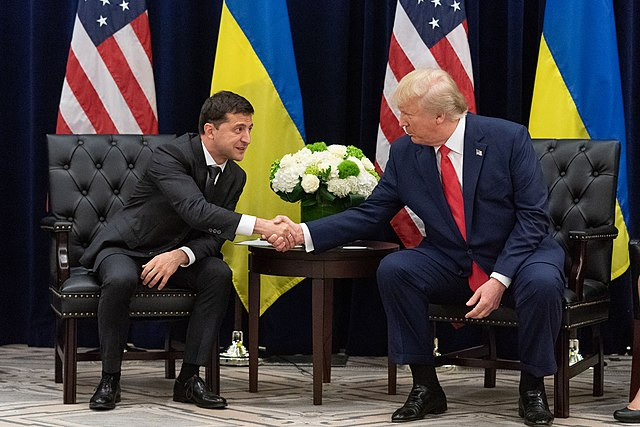President Donald Trump asked Ukrainian President Volodymyr Zelensky during a July 4 phone call whether Ukraine could strike Moscow and St. Petersburg if provided with the necessary long-range weapons, according to people familiar with the conversation, as Trump grows increasingly frustrated with Russian President Vladimir Putin's refusal to end the war.
"Volodymyr, can you hit Moscow? ... Can you hit St. Petersburg too?" Trump asked, according to a report by the Financial Times, which cited multiple sources with knowledge of the call. Zelensky reportedly responded, "Absolutely. We can if you give us the weapons."
The call occurred one day after Trump spoke to Putin and concluded that Moscow had no intention of halting its attacks. "I speak to him [Putin] a lot about getting this thing done. And I always hang up and say, 'Well, that was a nice phone call,'" Trump said. "And then missiles are launched into Kyiv or some other city. And I said, 'Strange.' And after that happens three or four times, you say the talk doesn't mean anything."
The shift in tone marks a departure from Trump's February Oval Office meeting with Zelensky, where he accused the Ukrainian leader of "gambling with World War III" and warned, "You don't have the cards right now." Since then, Trump has signaled a more aggressive approach, culminating in a new agreement with NATO to supply Ukraine with advanced U.S. weaponry, including Patriot missile systems and potentially ATACMS long-range missiles.
The White House has not confirmed the details of the reported exchange, and declined to comment when contacted by multiple outlets. The Kremlin has not publicly responded to the reports.
Trump's evolving stance comes as Kyiv ramps up its deep-penetration drone operations. Last month, Ukraine launched "Operation Spiderweb," a coordinated drone strike that destroyed roughly a dozen Russian bombers inside Russian territory.
According to Axios, the weapons deal under discussion could include offensive capabilities needed to target Russian military infrastructure far from the frontlines, a key demand of Ukrainian officials for months. The administration's approval of such systems would represent a major escalation in U.S. support.
Separately, Trump has given Putin a 50-day deadline to reach a peace agreement. If no deal is achieved by mid-August, Trump said the U.S. will impose 100% secondary tariffs on countries that continue to do business with Moscow-an unprecedented move that would significantly tighten the economic noose around Russia's trade partners.
Russia's Economy Minister warned last month that the country is "on the brink of recession," as sanctions and battlefield costs mount.





